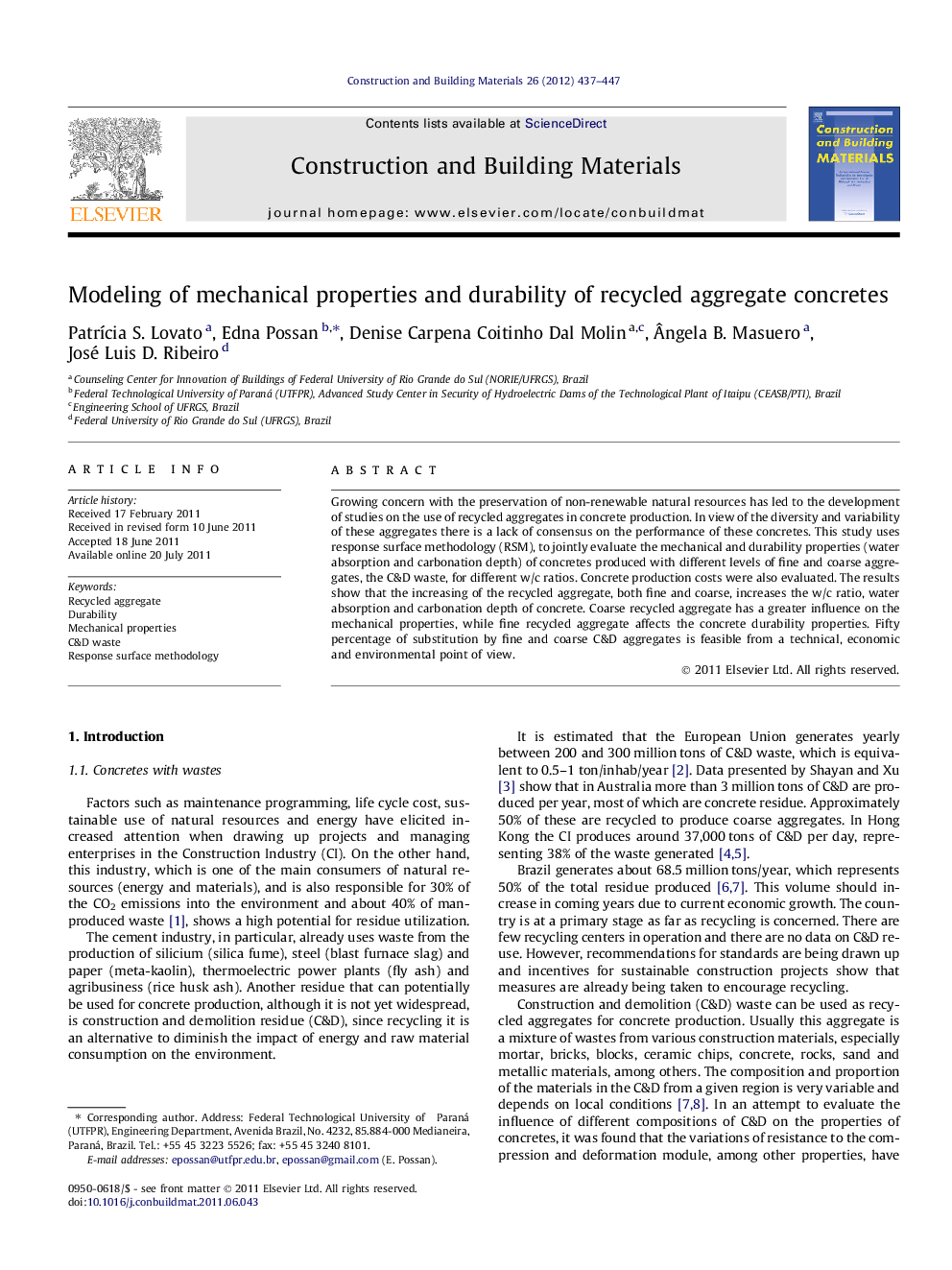| Article ID | Journal | Published Year | Pages | File Type |
|---|---|---|---|---|
| 259174 | Construction and Building Materials | 2012 | 11 Pages |
Growing concern with the preservation of non-renewable natural resources has led to the development of studies on the use of recycled aggregates in concrete production. In view of the diversity and variability of these aggregates there is a lack of consensus on the performance of these concretes. This study uses response surface methodology (RSM), to jointly evaluate the mechanical and durability properties (water absorption and carbonation depth) of concretes produced with different levels of fine and coarse aggregates, the C&D waste, for different w/c ratios. Concrete production costs were also evaluated. The results show that the increasing of the recycled aggregate, both fine and coarse, increases the w/c ratio, water absorption and carbonation depth of concrete. Coarse recycled aggregate has a greater influence on the mechanical properties, while fine recycled aggregate affects the concrete durability properties. Fifty percentage of substitution by fine and coarse C&D aggregates is feasible from a technical, economic and environmental point of view.
► Concretes were produced with different levels of fine and coarse aggregates the C&D waste, for different w/c ratios. ► Response surface methodology (RSM) was used to evaluate the mechanical and durability properties. ► Use of recycled aggregate increases the w/c ratio, water absorption and carbonation depth of concrete. ► 50% substitution by fine and coarse C&D aggregates are feasible from a technical, economic and environmental point of view.
